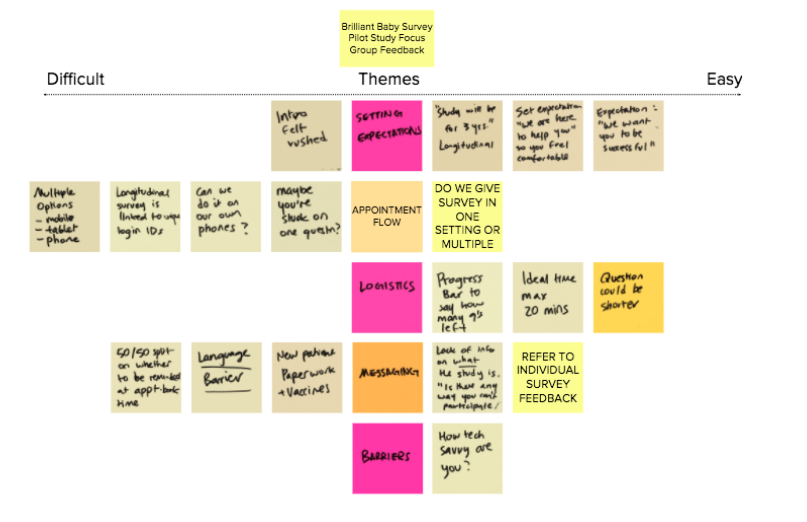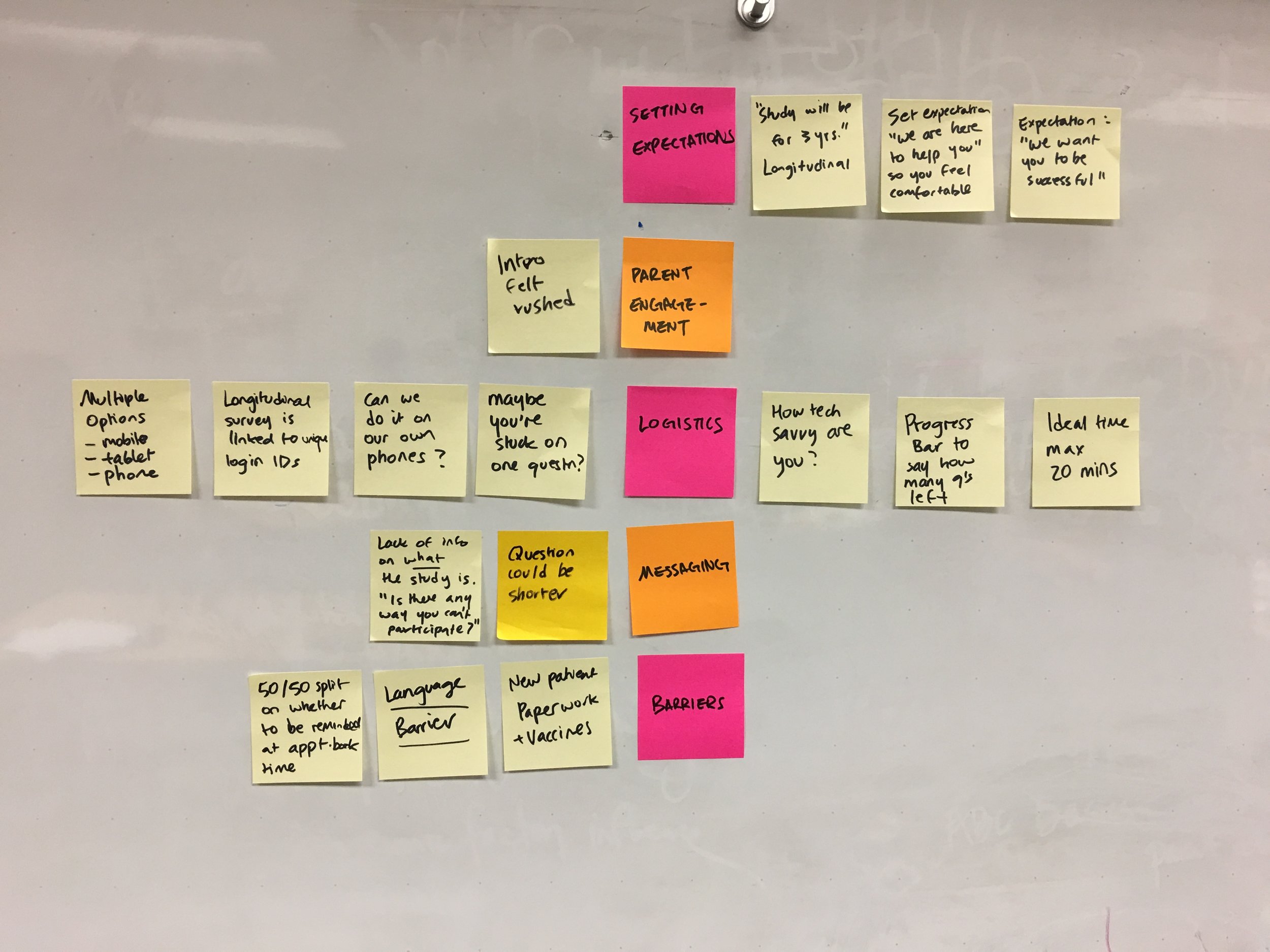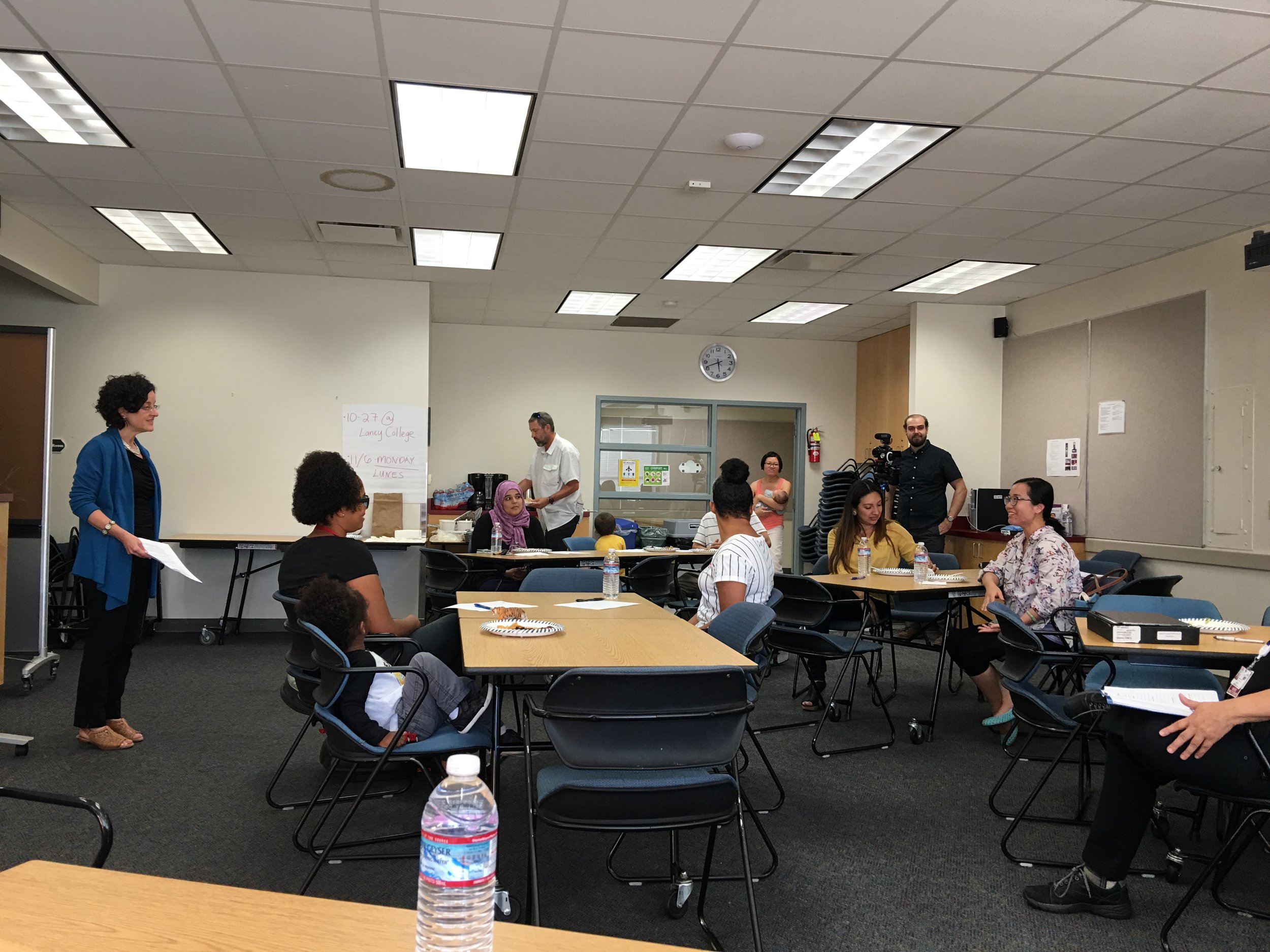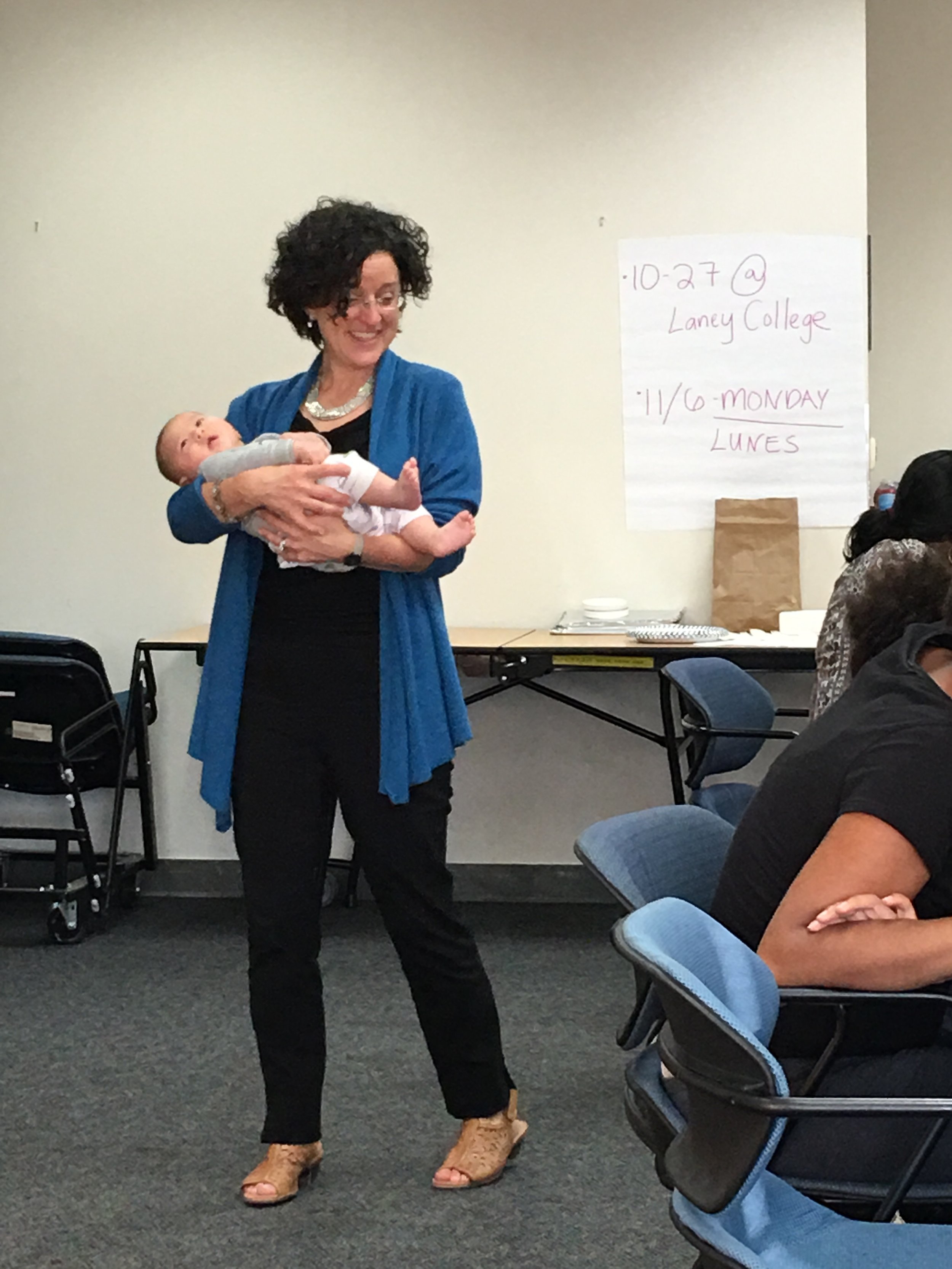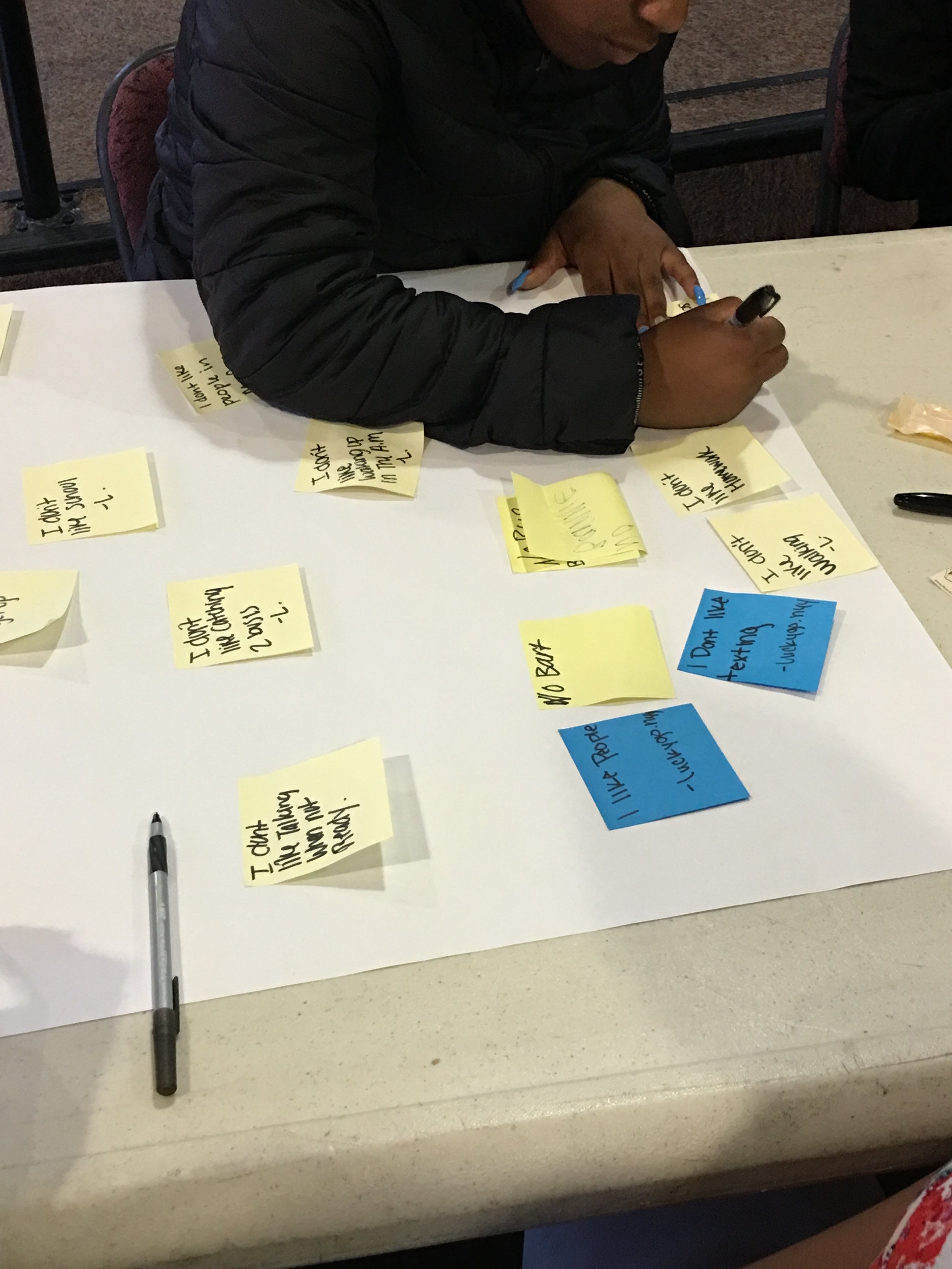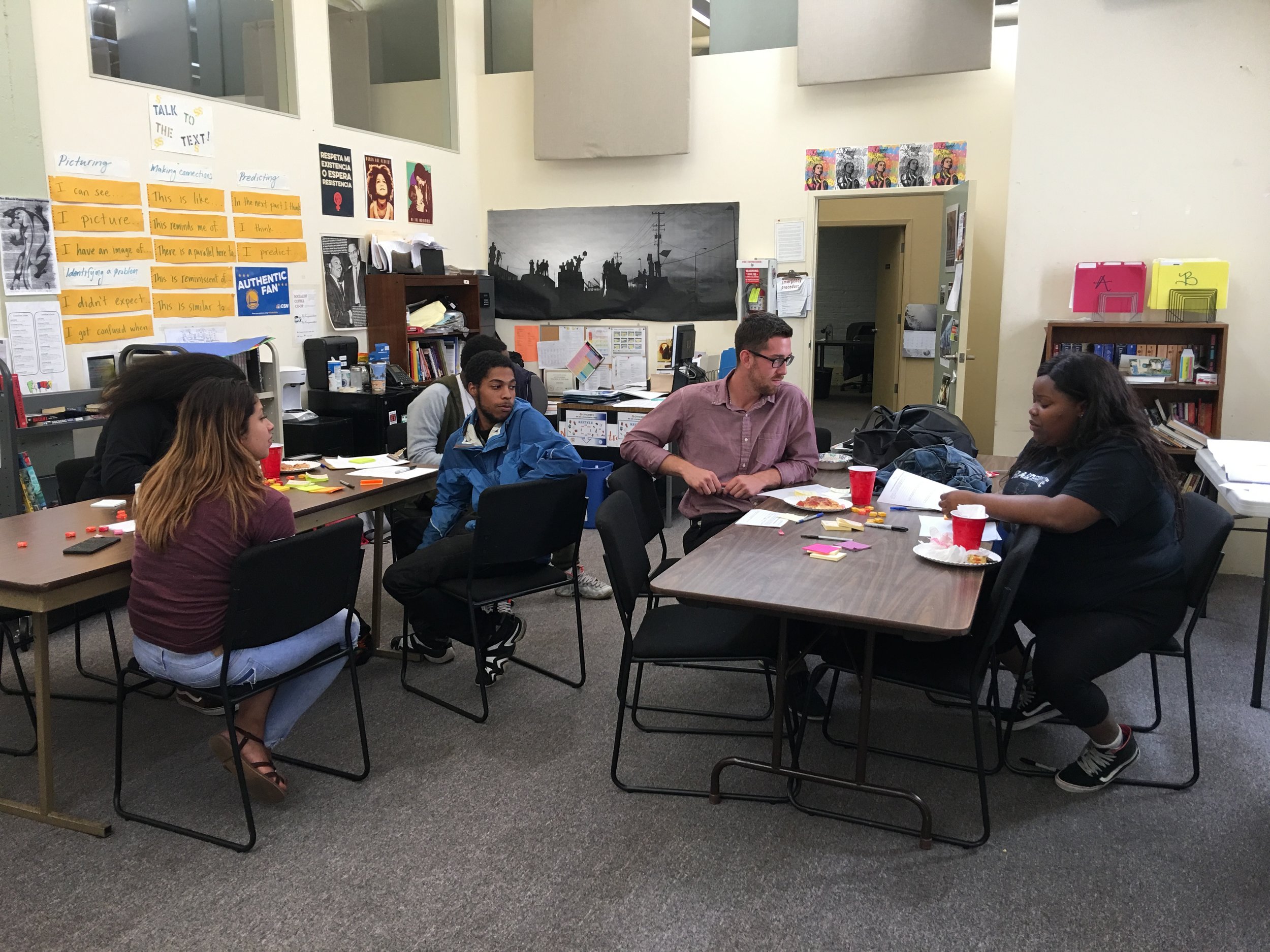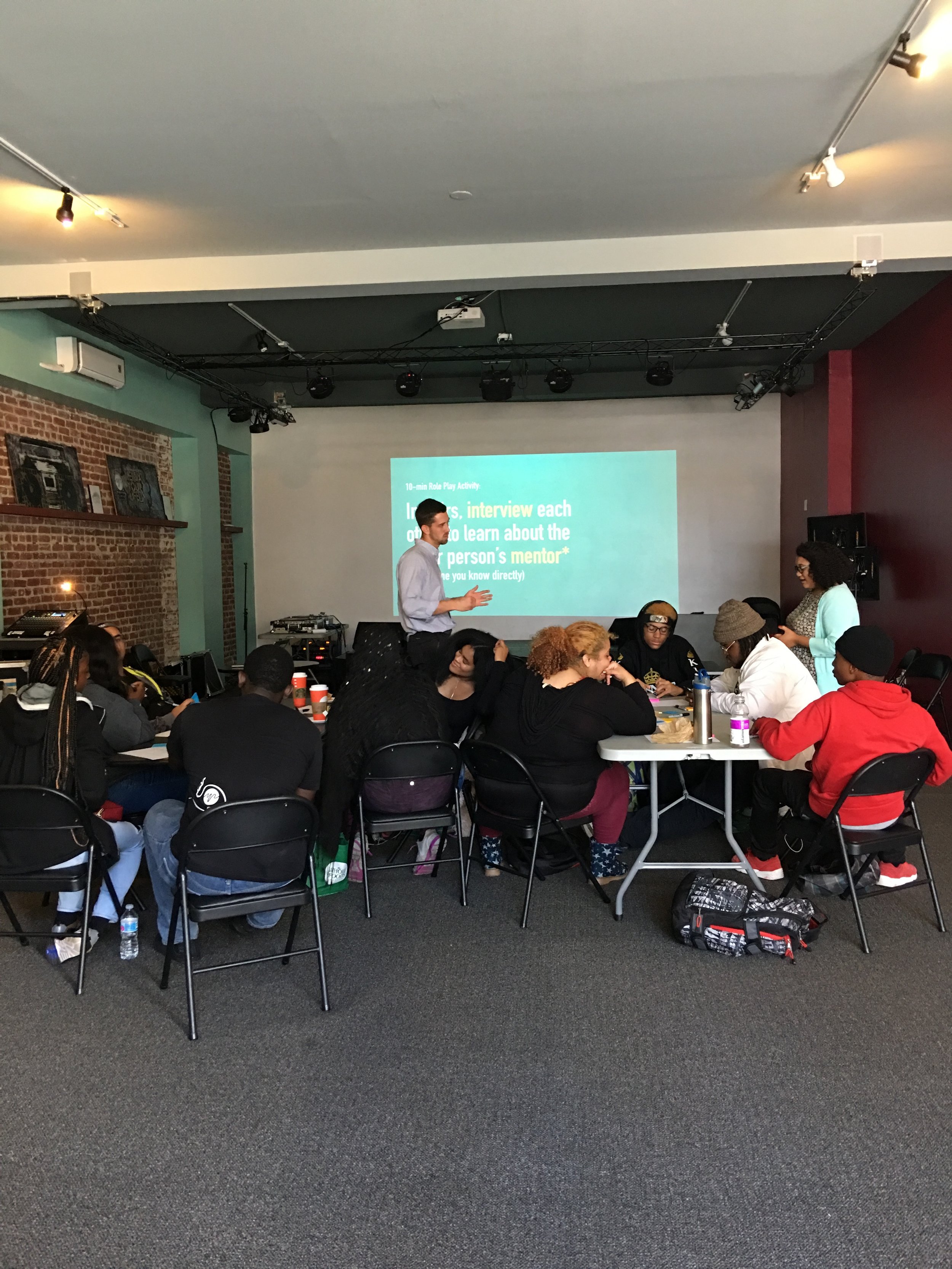Oakland Promise Parent Engagement
Helping support and empower parents in their financial planning initiatives
Overview
Oakland is evolving the model for college savings programs and demonstrating the value of holistic service planning through the Oakland Promise, a cradle-to-career initiative aimed at tripling the number of college graduates from Oakland within the next decade.
The CDL is supporting this initiative to develop a competency for service design in order to ensure Oakland’s services effectively address families’ needs. The CDL’s primary mission is to bring residents’ perspectives and ideas into service planning from the start. The OP is led by the City of Oakland Mayor’s Office, in partnership with the Oakland Unified School District (OUSD), East Bay College Fund, the Oakland Public Education Fund, and over 30 implementation partners including hospitals, community organizations, and colleges. Furthermore, CDL's partnership with the Oakland Promise is multifaceted, in that it is focused on bolstering parent engagement through two subsets of the Oakland Promise program, Brilliant Baby (BB) and Kindergarten to College (K2C).
How do we do it?
Scroll for our process...
Brilliant Baby: Our Process
Opportunity: CDL worked in close partnership with OP’s BB staff and stakeholders through its pilot program in the fall with Children’s Hospital Oakland (CHO), and other implementing partners such as the Alameda County Public Health Department (ACPHD), for the program’s longitudinal study launch in January 2018. CDL will assist in the usability testing of the survey and synthesis of parent engagement in the on-boarding process.
CDL’s established the intention of:
To increase participation of Oakland Promise parents and consistent deposits into CSAs;
To institutionalize service design method into the OP program through training 20 staff;
To align three of Mayor’s key initiatives (OP, CDL, OFE) for a holistic change in Oakland.
Process: Focus groups, spectrum mapping, co-designing feedback surveys
Delivery: Human centered research and streamlined on-boarding process that increased comprehension of the program processes through straightforward language and diagrams.
Brilliant Baby Survey Pilot Study Focus Group Feedback
Brilliant Baby Discovery and Co-Design:
Through iterative processes of evaluating feedback, CDL improved the on-boarding and parent engagement of BB with:
- Insights from focus groups and spectrum mapping that relayed that improvement could be made in:
- Appointment flow (e.g. increasing accessibility through platforms and improving options for communicating questions);
- Messaging in considering issues with language barriers, new patient papers, and a divide in if patients wanted sign-up reminders; and
- Technology fluency
- Identifying and executing improvements in four overarching touch points to help improve accessibility and readability, including:
- Reduced semantic complexity through over fifty grammatical and vocabulary edits in the explanatory information packets for the parent engagement on-boarding process
Created two diagrams to increase understanding for requisite parent engagement
Simplified the instruction manual for parents signing-up for family-owned accounts
Created cover sheets for the two manuals so parents know what they're looking at, at a glance
Tools: Spectrum mapping, focus groups, journey mapping, synthesis, post-its
Kindergarten to College: Our Process
Opportunity: CDL worked in close partnership with OP’s K2C staff and stakeholders through its pilot parent liaison training program in 2018 in partnership with OUSD. CDL will assist in the design and facilitation of parent engagement strategy for various K2C workshops and develop appropriate collaterals
CDL’s established the intention of:
- Refining and reshaping parent engagement plans in 36 Oakland Promise schools
- Training 72 OUSD Parent Leaders and Community Liaison staff in service design
- Establishing a joint Working group between OP and CDL for project stewardship
Process: Community workshops, process mapping, responsive analysis, persona development
Delivery: Human centered research and person-first research that improved parent engagement process and on-boarding rates
K2C Discovery:
Through iterative processes of evaluating feedback, CDL improved the on-boarding and parent engagement of BB with:
- Insights from focus groups and spectrum mapping that relayed that improvement could be made in:
- Appointment flow (e.g. increasing accessibility through platforms and improving options for communicating questions);
- Messaging in considering issues with language barriers, new patient papers, and a divide in if patients wanted sign-up reminders; and
- Technology fluency
- Identifying and executing improvements in four overarching touch points to help improve accessibility and readability, including:
- Reduced semantic complexity through over fifty grammatical and vocabulary edits in the explanatory information packets for the parent engagement on-boarding process
Created two diagrams to increase understanding for requisite parent engagement
Simplified the instruction manual for parents signing-up for family-owned accounts
Created cover sheets for the two manuals so parents know what they're looking at, at a glance
Tools: Spectrum mapping, focus groups, journey mapping, synthesis, post-its
Key Insights
- Youth Aspirations: In Oakland, youth (ages 16-24) have an idealized version of what their futures may look like. In general youth have an interest in a spectrum of goals and aspirations personally and professionally.
- Youth Success: Many youth in Oakland would perceive themselves as successful when their aspirations are either in progress or attained. However, many youth lack a realistic understanding of the requirements necessary to attain their aspirations.
- Youth Mentorship: Youth in Oakland find value in mentorship and understand the impact a positive mentor may have on their futures, specifically regarding financial security. However, outside of their respective youth employment programs, youth do not have a clear understanding of how to develop and sustain a mentor relationship with individuals who may be an asset to their financial security.
- Barriers to Financial Security: There are a multitude of barriers that prevent youth in Oakland from participating in Youth Employment opportunities and practices that enhance their financial security. These barriers include, but are not limited to transportation, cost of living, lack of skills, and lack of childcare. Additionally, youth noted that motivation levels, family concerns, peer pressure, and self-esteem as barriers to participating in Youth Employment opportunities and practices that enhance their financial security.
- Solutions to Barriers: Youth are creative and flexible in adapting to the barriers they are faced with, and it was more manageable for youth to share adaptations rather than solutions to their barriers. However, exposure to educational resources relating to money management, interpersonal relationship building skills, and esteem coaching were notable solutions to several barriers presented by youth.
Tools: Research, Surveys, Interviews, Data analysis, Workshops, Journey Mapping, User Stories, Synthesis
Co-Design Workshop:
Coming soon...
Implementation:
Coming soon...



